Blog-4
now browsing by category
Link Blog: Skateboarding
From a very young age I was seduced by the elegance of skateboarding.
Growing up watching the likes of:
Rodney Mullen – The greatest street skater of all time, single-handedly pioneering street skating as a whole into what it is today.
Ryan Sheckler – The “Gap God,” from a young age capable of clearing enormous gaps, while now as an adult riding for Plan B.
Bob Burnquist – A personal favorite. A really good guy that was always pushing the boundaries of skating ramps.
I began using words like gnar, sick, and stoked.
I became extremely fine-tuned in my observation of tricks and their assorted, complicated names and variations.
There are skaters all over the world, united by a passion. When traveling the world, you can expect to speak to skaters of all different nationalities. Here is a map of the languages spoken around the world.
I would go from town to town, skating all the different parks in my area.
If you’re interested in finding a park to skate, take a look at this map.
Check out these videos for some classic skating:
First language that became the second language
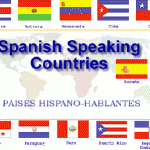

I am hispanic. My parents have taught me to speak, read, and write Spanish. It was my first language. I had trouble learning English when I was younger. I did not pronounce English words good. I was not a good speller. I was not good in the English subject. Till, this day I am still not perfect at it. However, as imperfect I am in the English language. In high school, I started noticing how I am losing some of my Spanish speaking skills. I forgot how to write. I forgot how to say certain words. I was paying attention to English, where I was forgetting Spanish.
I told it upon myself to do some research where people can learn Spanish.
This first link shows facts about the Spanish language. It is important to know why you want to start to learn a different language. http://spanish.about.com/od/historyofspanish/a/10_facts_about_spanish.htm
Learning Websites
The link above leads people to a website with different links that show people how to speak certain Spanish and understand the Spanish language better
http://www.spanishlanguagecenter.com/
The link is a place, in San Diego, where they offer classes for children and adults for Spanish. These classes are to help people learn fluent Spanish for those that want to learn.
This is another website, above, to help people find a place to learn Spanish. The pronunciation, writing, and reading.
http://www.youtube.com/watch?v=Rj6pAX7aAkg The idea of this video is to show that learning a language also takes listening to it. People learn by listening and watching. If a person, is to watch this and say it with the person it is more likely for the person to remember.
http://www.youtube.com/watch?v=PF-mO4YgCPI This is a different learning video. It is how different Spanish countries use the language. The video shows people the dialects there are in Central and South America.
Culture
Since I am Salvadorian. I will tell you about my culture. My country is in-between Honduras and Guatemala.
http://www.kwintessential.co.uk/resources/global-etiquette/elsalvador.html The website has some facts and information about the Salvadorian culture.
To learn the culture of El Salvador, people must know the music that the people hear. Also, know what type of music originates from this country.
http://www.mapsofworld.com/el-salvador/culture/music.html
There is not much on the tradition of dancing in El Salvador, but there are some.
http://estavilloelsalvador.weebly.com/folk-dance-the-dance-of-chapetones.html
Food is what represents a country. The website shows El Salvador national food and what people eat. It also shows the recipes of the food.
http://www.whats4eats.com/central-america/el-salvador-cuisine
These are other links to beautiful sights in El Salvador.
http://www.tripadvisor.com/Tourism-g294475-El_Salvador-Vacations.html
http://www.lonelyplanet.com/el-salvador/sights
Click, click, click! *Linking Blog*
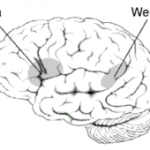
Links for Ling!
DIALECTS:
Here are some interesting and interactive links for Dialects. Take the quiz and see just how accurate the results are!
QUIZ:
- http://www.nytimes.com/interactive/2013/12/20/sunday-review/dialect-quiz-map.html?_r=0
COMPARE YOUR RESULTS TO THEIR ACTUAL STUDY:
READ MORE ABOUT THIS STUDY AND DIALECTS IN THE US AND DIFFERENCES BETWEEN LANGUAGES AND DIALECTS:
- http://www.huffingtonpost.com/2013/06/06/dialect-maps_n_3395819.html
- http://www.huffingtonpost.com/2013/05/09/dialect-map-of-the-us-region-aschmann_n_3245496.html
- http://www.economist.com/blogs/economist-explains/2014/02/economist-explains-8
Stuff about Sociolinguistics:
- http://www.pbs.org/speak/speech/sociolinguistics/sociolinguistics/
- http://www.slideserve.com/odessa/sociolinguistics
- https://www.youtube.com/watch?v=eYIyMCoIAZY
LANGUAGE, LINGUISTICS, AND THE BRAIN!

Important areas in the brain where language can be affected.
Go through this slide show for a recap on important details about these areas of the brain, plus more!
- http://www.slideshare.net/marilyn12/language-and-brain-development
- Steven Pinker- Linguistics as a Window to Understanding the Brain
- http://www.slideshare.net/kiprus/neurolinguistics-workshop
- http://www.npr.org/blogs/13.7/2013/12/02/248089436/the-truth-about-the-left-brain-right-brain-relationship
- http://healthland.time.com/2013/04/23/bilingualism/
Passion for Languages
Languages, languages, languages etc.
Spanish along with English were both my first languages as my parents enforced that I learn both when I was younger, another reason being my Mexican heritage. In my household we mainly speak Spanish to each other in order to practice and fluently speak the language. When I began high school I decided to take introductory Italian and ended up taking and passing the AP Italian class and exam my senior year, while also earning the senior standout award for Italian. Italian came easy to me because I already spoke Spanish fluently, and these languages belong to the same family, which is the Romance language family. This family currently also includes French, Portuguese, Romanian, and Catalan. The results of these languages belonging to the same family include similarities in phonology, semantics, morphology, and even syntax.
Example of phonological/semantic similarities and differences in Spanish-Italian:
Italian/Spanish: Verde-Green
Rosso (Italian) Rojo (Spanish)- Red
Example of syntax similarities in Spanish-Italian (Noun before adjective):
Italian- La macchina verde…
Spanish-El carro verde…
English: The green car…
Spanish-Italian Comparison: How are they similar?
http://www.lancaster.ac.uk/staff/letchfoa/comparison/comparison.htm
Italian vs. Spanish: Listen to the differences and similarities (may want to skip to about 2:00)
https://www.youtube.com/watch?v=unCmwgnE59o
Romance Languages Overview: what are they?
http://en.wikipedia.org/wiki/Romance_languages#Modern_status
Comparison of the Romance Languages: how are they similar?
http://www.nativlang.com/romance-languages/grammar/syntax.php?e=0
Learning the Romance Languages: Curiosity helped the cat learn new languages
https://www.youtube.com/watch?v=VoaoDTY4FuU
Map of the Romance Languages: Where in the world?
http://indoeuro.bizland.com/tree/ital/rom.html
Translator…Maybe?
Over time I have come to realize that I have a sort of passion for languages although I do not speak many. I believe that learning other languages create bridges between cultures while also destroying borders. Because of my passion for languages, I am planning on learning all the Romance languages, along with many others. The language I am planning to focus on aside from the romance languages is Mandarin Chinese, because apparently it’s the “language of the future”. Also, due to my passion for languages I have highly considered to go through with it as a career. Some careers include translator, interpreter, or even teaching a language. Learning other languages may also help in different career fields such as marketing in global business. Ultimately understanding different languages are important in the world because it makes communicating far easier. As stated before, with my background in Spanish and Italian, the Romance languages will hopefully come easier due to my understanding of the phonology, semantics, syntax, and morphology.
Languages: Building Bridges, and fighting borders
http://lingqcentral-en.lingq.com/learning-foreign-language-bridge-cultures
Mandarin Chinese: Is it the language of the future?
http://www.bbc.com/news/magazine-17105569
Careers: Language-based careers?
http://www.omniglot.com/language/careers.htm
Careers: What is translating? What is interpreting?
Careers: Language can come in handy
UK and languages:
http://southendgirls.school-site5.net/?_id=622
Blog 4, The struggles and differences in languages
Arabic Phrases
Semantics/ Phonology
I was raised in a Multi-Lingual environment because I was adopted, lived with two different set of family, my Biological and my foster. I spent most of my youth travel between different languages, cultures, religions, and countries. I was exposed to several languages at a very young age my first language was the language of my nanny, Spanish. Then a I learned my foster mom’s English, my foster dad’s Pushto, and my biological family’s Farsi. Also I was consistently shifting from Pakistan, which spoke Urdu, and the United States; as a result, learning and adopting new languages and cultures became easy and second nature to me.
I am currently taking up Turkish writing, reading, and dialog. However, I am still working on perfecting my Arabic. Of all the languages I think Arabic is a bit difficult due to its several different regional dialects. And since the Language is extend from the Arabian Peninsula to the West Africa, semantics and phonology is a riddle within each region.
Example of Phonological differences:
“Kursi” means ‘chair in Standard Arabic.
Villages in Palestine–>Chursi Others–>Kursi
“Qalb” means ‘heart’ in Standard Arabic.
Sham (Northern Arabia; Syria, Palestine, Lebanon, Jordan)–>Aalb
Egyptian–>Aalb Gulf Arabic–> Galb African Arabic–>Qalb
Example for Semantics in manners/phrases:
“Kay fahalouka” means ‘how are you’
Villages in Palestine–>Chifik Egyptian–>Ezayak Iraq–>Shouko Mouko
Gulf Arabic–>kai fahal African Arabic–>Kidair
Sham (Northern Arabia; Syria, Palestine, Lebanon, Jordan)–>Kifik
Do to these variations; it’s a bit difficult to master the Arabic language. But thanks to YouTube and my amazing friends they send me videos and emails to expose to different dialects. The most helpful out of all the tactics is the actually conversation I exchange with Arabs. I need someone to hear and correct my pronunciation, phrases, and grammar so I can use the same material more efficiently.
Here are some different dialects of Arabic:
Egyptian
Gulf Arabic
The difference in the Arabic accent like any other language reveals the speaker’s socio-economic status, level of education, and the speaker’s ethnicity. Most educated and city folks drop their “Q” sound and replace it with an “A” in beginning of the word. Most Villagers replace their “K” with “Ch” sound in the beginning of the word. Egyptians have the most interesting Arabic because unlike most regional dialects; Egyptian Arabic doesn’t pronounce its “Ja” sound. Instead, Egyptian Arabic replaces it with a “Ga” sound, regardless of the sound’s location.
Furthermore, Syrians also pronounce their “Ja” different. Although, they don’t replace the sound with a completely different sound but the “Ja” is more French than Arabic. As far as the African Arabic like Moroccan, Algerian, Libyan…, this Arabic consists of different languages assimilated in the dialect. These regions not only speak Colonial Arabic but also Berber (language spoken by villagers).
The Gulf is the closest to classical Arabic, it still maintained its posture in pronouncing most letters to its origin, the semantics of the language, and phrases structure didn’t change significantly either.
Go Aztecs!
As both a student at SDSU (Go Aztecs! Even though our mascot is up for debate) and being of indigenous Mexican-Indian descent (according to my Abuela, we are actually Aztec), I have always been fascinated with the culture and language of these native people.
Last Summer, I actually visited Teotihuacan, Mexico D.F. with my family and got to climb the pyramids that the Aztecs had once climbed. Here’s my sister and I on top of the moon pyramid:
As the story goes, the Aztecs were a nomadic tribe that had just left Aztlan when they came across the land that was to become the great city of Tenochitlan, by signs from their god, Huitzilopochtli.
While touring the ruins, I came across names that I had heard before on the SDSU campus (Chapultepec, Tenochca, Toltec, Cuicacalli). This language seemed to be completely separate from Spanish and quite hard for me to pronounce. (So many q’s and x’s) Our tour guide, Nacho, introduced us to the Nahuatl language, which is the official language of the Aztec peoples.
Many indigenous tribes once covered the landscape that is Mexico. A map of these peoples can be found here. According to statistics, only 5.4% of the population speaks one of the 62 indigenous languages, which all belong to the Amerind language family. Nahuatl is the most popular of these languages and is classified as an agglutinant language, meaning words consist of a string of prefixes, suffixes, and roots to form an idea.
San Diego State has incorporated the Nahuatl language into the naming of its buildings to go with the whole Aztec theme. The university even offers indigenous language classes through the Latin American studies department.
The history of the Aztecs is fascinating and I feel honored to have been able to visit the very place where they once lived. My interest in the language and culture (and Mexican food in general) are only heightened after my trip.
#aztecs #sdsu #indigenous #nahuatl
Linguistic Articles
There are many linguistic websites/blogs out there. Seth and I have found a compilation of websites that we found interesting. We share below some fun and interesting linguistics sites.
1- http://linguistlessons.blogspot.com/
This is a classic linguistics blog. The author reviews and writes about miscellaneous things that relate to linguistics. He/she is most likely a linguistics professor.
2- http://www.ojohaven.com/fun/
This website has many links for articles and utilities that the author found useful. It is a great place to find linguistic inspiration.
3- http://www.reddit.com/r/linguisticshumor
If you don’t know what reddit is, it is a hub for miscellaneous blog type groups. There are many out there, but this one is for linguistics humor.
4- https://www.pinterest.com/ncihc/linguistic-humor/
Much like the reddit, there is a Pinterest for linguistic humor as well. This one has more photos and images that are quite funny.
5- https://instaedu.com/Linguistics-online-tutoring/
Do you need a linguistic tutor to help with homework and understanding? Here’s a website that hooks people up with tutoring for linguistic help.
6- http://linguistlist.org/ask-ling/
Don’t need a tutor, but have a problem/question that needs answering? Here’s a website where you can ask professional linguists anything!
7- http://www.linguisticsociety.org/content/why-major-linguistics
What is linguistics? This website shares general information to convince the lingu-idiots into being linguistics majors.
8- http://www.studyspanish.com/
a free online Spanish class with courses ranging from beginner to advanced.
9- http://www.spanishdict.com/
this website gives extensive word definitions in Spanish and also conjugates any verb that you can think of in the Spanish language.
10- http://8tracks.com/cherryamy/bonito
this website teaches the viewer the Spanish language through auditory segments and music.
a website used as an aid to teach a variety of different languages.
This website compares languages to one another.
Bonjour! Je m’appelle Jia
After taking a year of French in middle school, my love for this language has grown. I’ve always wanted to live in Paris and I would sometimes imagine myself strolling down the street just listening to everyone around me speak French. The language itself is fascinating and beautiful. Thankfully, I still remember the basics of French and can carry out a simple conversation. I think that French is a very commonly used language and is spoken in many countries around the world. Nonetheless, it is just a very fun language to learn and speak!

Many English words are of French origin in case you did not know that. Also, in English, the “p” and “k” sounds are often aspirated, while in French, the “p” and “k” sounds are generally unaspirated. To me, pronouncing the words in French is not as difficult as telling the time in French. When it comes to telling time, I definitely prefer the English method.
If you plan on travelling to any of these countries in the future, make sure to pick up some French before you go, or use an online translator. Also, learn the commonly used words and essentials of French and you will survive throughout your trip.
That’s it for now, Au revoir!

The Language within Us

Language Acquisition
A very helpful link that gives an overview of language acquisition. It describes all the stages of language acquisition. It is very detailed and gives specific examples. Since this a website mainly for teachers teaching students acquiring a second language, it focuses mainly on the stages of second language acquisition rather than first. It also provides recommendations and ways to help the development of second language acquisition.
http://www.colorincolorado.org/article/26751/
Here’s a set of video lectures on Youtube that discusses a sub branch of psycholinguistics, language acquisition to be more specific. The first video talks about the role of language acquisition within cognitive linguistics and the specific stages involved. The second video goes into more detail about the main developmental aspects during the acquisition process such as the babbling, one word or two word stage. The last and third video is about the main driving forces in the language acquisition process and delves into innateness of language and factors that influence a child’s language.
https://www.youtube.com/watch?v=prMGbLrbudA&list=UUaMpov1PPVXGcKYgwHjXB3g
https://www.youtube.com/watch?v=_12OZGNGlPU
https://www.youtube.com/watch?v=rWmjpAlEqN0
Language Processing & Framing
Here’s an interesting video on how Google uses natural language processing for spelling corrections. Natural language processing has allowed for interactions between humans and computers. This process enables computers to derive meanings from human language input.
https://www.youtube.com/watch?v=Sx3Fpw0XCXk
A very thorough article about cognitive framing. It describes what frames are and discusses the importance of frames. It also provides different forms of frames and a diagram to help us better understand it.
http://www.beyondintractability.org/essay/framing
The following two links are also about framing. The first one talks about the framing effects while the second one is about the frame theory.
http://www.adsavvy.org/the-power-of-framing-effects-and-other-cognitive-biases/
http://www.csun.edu/~rk33883/Framing%20Theory%20Lecture%20Ubertopic.htm
Language in the Brain
A very simple yet informative video on the language areas of the brain and the effects of damage to those parts of the brain. It also talks about aphasia and split brain patients.
https://www.youtube.com/watch?v=lBqShvm4QRA
A website that talk about the types and causes of speech and language disorders. It also shows the areas in the brain that ar e affected in each disorder.
http://emedia.leeward.hawaii.edu/hurley/Ling102web/mod5_Llearning/5mod5.2_disorders.htm
This website goes into very specific details about the Broca’s, Wernicke’s and other language processing areas in the brain. It also includes a model of spoken language functions in the brain, discusses how handedness affects brain lateralization and how the right hemisphere contributes to language.
http://thebrain.mcgill.ca/flash/d/d_10/d_10_cr/d_10_cr_lan/d_10_cr_lan.html
Talks about what happens to the brain when we listen and speak and how we process these words to form a response.
Secondary Languages
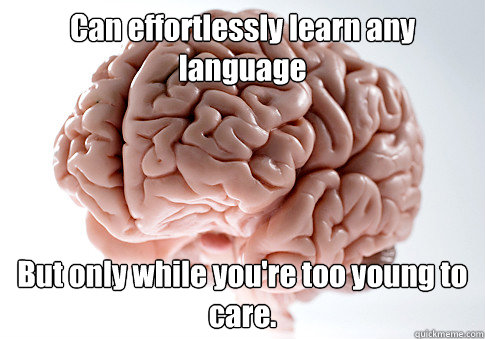
Have you ever had this feeling/thought?
It is one that comes almost exclusively when someone is trying to learn a new language.
Other than to get your high school diploma, why would you want to learn a second language anyway?
Well, for starters, how about some statistics about second languages. There are many places that use more than one language to communicate with each other. You, given that you may want to be more adventurous, you can help to preserve dying languages. If so, you can use some of these principles to learn the language.
Even here in America, and Puerto Rico, a second language is starting to become a necessity for communication:
http://io9.com/the-most-common-language-in-each-us-state-besides-engli-1575909143
http://www.topuertorico.org/culture/language.shtml
http://wfpl.org/post/what-jcps-doing-accommodate-explosive-growth-english-second-language-students
If you can learn that second language, it will be very beneficial. If you don’t think so, just ask them:




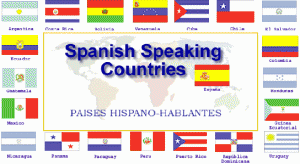
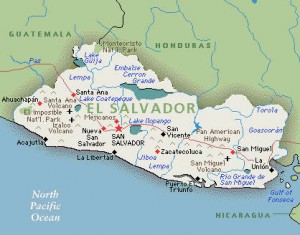


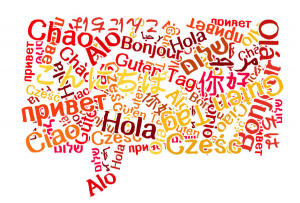
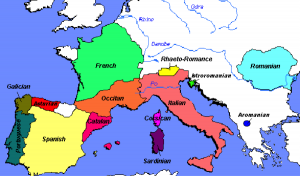



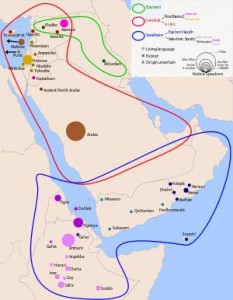




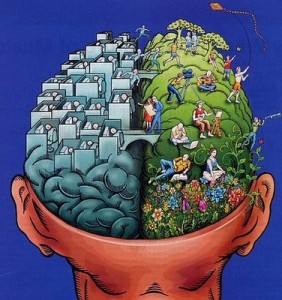
 D5 Creation
D5 Creation